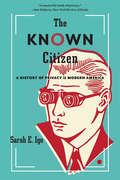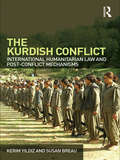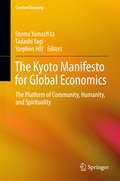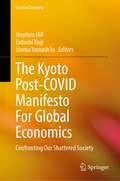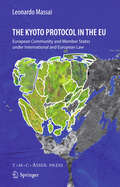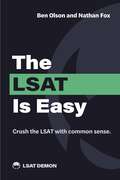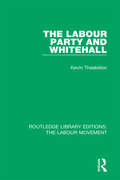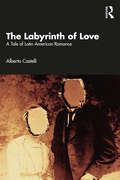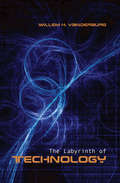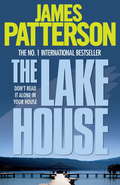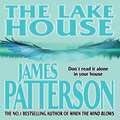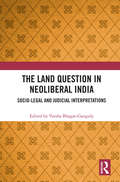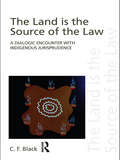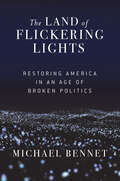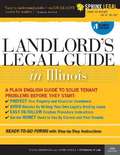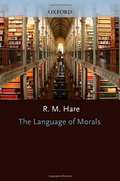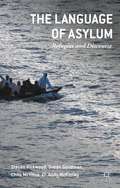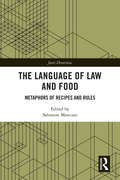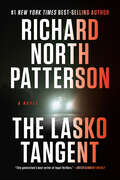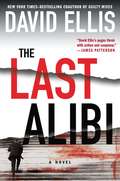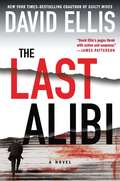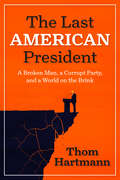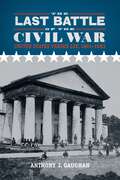- Table View
- List View
The Known Citizen: A History of Privacy in Modern America
by Sarah E. IgoEvery day Americans make decisions about their privacy: what to share, how much to expose to whom. Securing the boundary between private affairs and public identity has become a central task of citizenship. Sarah Igo pursues this elusive social value across the twentieth century, as individuals asked how they should be known by their own society.
The Kurdish Conflict: International Humanitarian Law and Post-Conflict Mechanisms
by Susan Breau Kerim YildizThis book is highly topical considering the recent resurgence of violence by the PKK, the incursions into Northern Iraq by the Turkish army and security forces and Turkey's EU accession negotiations. Turkey has become an increasingly important player in Middle Eastern geopolitics. More than two decades of serious conflict in Turkey are proving to be a barrier to improved relations between Turkey and the EU. This book is the first study to fully address the legal and political dimensions of the conflict, and their impact on mechanisms for conflict resolution in the region, offering a scholarly exploration of a debate that is often politically and emotionally highly charged. Kerim Yildiz and Susan Breau look at the practical application of the law of armed conflicts to the ongoing situation in Turkey and Northern Iraq. The application of the law in this region also means addressing larger questions in international law, global politics and conflict resolution. Examples include belligerency in international law, whether the ‘War on Terror’ has resulted in changes to the law of armed conflict and terrorism and conflict resolution. The Kurdish Conflict explores the practical possibilities of conflict resolution in the region, examining the political dynamics of the region, and suggesting where lessons can be drawn from other peace processes, such as in Northern Ireland. This book will be of great value to policy-makers, regional experts, and others interested in international humanitarian law and conflict resolution.
The Kyoto Manifesto for Global Economics: The Platform Of Community, Humanity, And Spirituality (Creative Economy Ser.)
by Stomu Yamash’ta Tadashi Yagi Stephen HillThis book confronts the failings of current global economics to deliver the equity, sustainability and community empowerment which humanity now needs to handle a troubled future. The volume proposes an economy built from our society, not the other way around.The Kyoto Manifesto was built, layer by layer, over a period of 4 years, based on broad-ranging international symposia held in Kyoto between 2014 and 2017, hosted by the Center for the Creative Economy, Doshisha University. Not stopping at theory and untested ideas however, the Manifesto proposes practical action that will make a difference, including in the problematic technological and ecological context of humanity’s immediate and long-term future.The book is unique and innovative for it moves adventurously across very broad territory. The Manifesto draws from world philosophic arguments, including, specifically, a critique of “liberalism”, further, exploring sociology, cultural anthropology, politics, primatology and early humanity, even quantum physics. Argument is set within mainstream post-1972 economics and political economics as well as direct practical experience working to empower disadvantaged communities through the United Nations.Most importantly, the book’s analysis is deeply informed by the practice of searching for what is “sacred”, the ultimate essence of our humanity, what we can be as a human race—empowered, fulfilled individuals, deeply sharing and caring for each other across our separate cultures and lives. Stomu Yamash’ta’s On Zen performances, set the context for the Symposia, bringing different religions and cultures together across their dividing boundaries into a coherent search for peace and harmony through sacred music. Informed by alternate cultural paradigms for economics, the book probes deeply into philosophies and practices that already exist within Eastern and Western societies, and offer lessons for our future.The result is an economics that stresses harmony with nature, and balance in social relations. It places an emphasis on community—human sharing and trust—as a platform for our future, not separate from the global economy but integrated into its very foundations. This is a book for all who care: a plan for our sustainable future built from the best of what our humanity is and can offer.
The Kyoto Post-COVID Manifesto For Global Economics: Confronting Our Shattered Society (Creative Economy)
by Stomu Yamash’ta Tadashi Yagi Stephen HillThis book, The Kyoto Post-COVID Manifesto for Global Economics (KM-PC), is a sequel to our 2018 book, The Kyoto Manifesto for Global Economics (KM-I, 2018). It further exposes the failures of a global economic regime that, based on self-interest, has led to the enormously unequal and fragmented society of today and our decreased ability to respond and recover from the critical worldwide consequences of such a regime over time — notably, climate change. At stake is our very survival beyond the twenty-first century. The fundamental tenet of this book is that our power to heal our currently fractured society lies in the depth of our humanity — in our shared human spirit and spirituality. What is sacred or of imperishable supreme value is what we can be as a human race: empowered, fulfilled individuals, living in harmony, deeply sharing and caring for one another and the environment that sustains us across our distinct cultures and worlds in which we live. Thus, the norms in our economic relations do not have to be those of self-interest that separates us, the ever-watchful distrust represented by “the deal” and immediate economic advantage for me. Instead, we can build an economic frame for our society based on mindfulness, care, mutual human benefit, and trust — on our shared humanity. Our argument was complete and we were ready to publish. But then, suddenly, from the dawning of 2020, everything changed. COVID-19 invaded and the world as we knew it simply stopped. No one saw it coming. As authors, we waited to watch and seek to understand. The result is that the book captures the COVID trauma and, against the fractures based on self-interest already visible in today’s society, assesses the impact of COVID-19 now and for the future. Focusing on a humanity-based economics is even more important now, and this book shows why.Chapter 15 is available open access under a Creative Commons Attribution 4.0 International License via link.springer.com.
The Kyoto Protocol in the EU
by Leonardo MassaiThe participation of the European Community and the Member States in the international climate change regimes is a complex issue. In the case of the Kyoto Protocol, this is rendered more complicated by the fact that, for the purposes of Article 4 of the Kyoto Protocol, the membership of the European Community and Member States is frozen at a particular point in time. The result of this is that, under international law, the European Community and a part of the Member States (EU15) have agreed to jointly fulfil some of those obligations, whereas under community law all Member States share a certain degree of responsibility to meet the obligations created by the Kyoto Protocol. This book analyses in great detail the Kyoto Protocol and the obligations established, such as monitoring and reporting obligations, eligibility criteria and reduction commitments.
The LSAT Is Easy
by Nathan Fox Ben OlsonTired of overcomplicated LSAT prep that leaves you more confused than when you started? Nathan Fox and Ben Olson, cofounders of LSAT Demon, have a simple message for you: The LSAT Is Easy. Ben and Nathan have spent decades teaching students to cut through the noise and understand the LSAT. No more gimmicks, no more getting stuck between two answer choices, and no more convoluted diagrams. This LSAT study book will show you how to really understand Logical Reasoning and Reading Comprehension one question at a time, using simple and effective strategies. With step-by-step guidance, real LSAT practice questions, and world-class explanations, you’ll know your progress is real. Best of all, you’ll learn the secret law schools don’t want you to know: with the right LSAT score, you can go to law school for free.
The Labour Party and Whitehall (Routledge Library Editions: The Labour Movement #38)
by Kevin TheakstonFirst published in 1992. In this lively and controversial book, Kevin Theakston examines the Yes, Minister-style argument popularised by Tony Benn and Richard Crossman that the civil service obstructs Labour government policies. He argues that in fact the Labour party’s problems and failures in office are largely political in origin. The book surveys the development of socialist thinking about Whitehall, and examines the claim of a Labour MP in 1979 that ‘It is as if Labour in office has now lost all stomach for administrative reform.’ Theakston looks at the effectiveness of Labour’s various reform schemes, raising important issues such as politicisation and power in the civil service, Whitehall management, elitism in civil service recruitment, and secrecy and ‘open government’. This book will appeal to researchers and students of British politics, public administration, and history, as well as to all those with an interest in Whitehall reform, or in Labour Party politics.
The Labyrinth of Love: A Tale of Latin American Romance
by Alberto CastelliThis book studies the various narrative shades of love in twentieth-century Latin American fiction. It examines writings by Isabel Allende, Roberto Arlt, García Márquez, and Mario Vargas Llosa. The author provides a close textual reading of each novel and discusses how humans make sense of their lives through love. He shifts the focus of these writings from political violence and historical disillusionment to the illusion of love.An important contribution to Latin American literary criticism, this book will be of interest to students and scholars of literature, history, Latin American literature, philosophy, ethics, aesthetics, comparative literature, and sociology.
The Labyrinth of Technology
by Willem H. VanderburgWhy does modern technology succeed so brilliantly in some respects and simultaneously fail in others? While he was completing a doctoral thesis in mechanical engineering in the late 60s and early 70s, Willem Vanderburg became convinced that the environmental crisis and the possible limits to growth would require a fundamental change in the engineering, management and regulation of technology.In this volume he exposes the limitations of conventional approaches in these fields. Modern societies urgently need to rethink the intellectual division of labour in science and technology and the corresponding organization of the university, corporation, and government in order to get out of a self-destructive pattern where problems are first created by some than then dealt with by others, making it almost impossible to get to the roots of anything. The result is what he calls the labyrinth of technology, a growing patchwork of compensations that merely displace and transform problems from one place to another. The author's diagnosis suggests the remedy: a new, preventive strategy that situates technological and economic growth in its human, societal, and biospheric contexts, and calls for a synthesis of methods in engineering, management, and public policy, and of approaches in the social sciences and humanities. He also suggests that this same synthesis can be applied in medicine, law, social work, and other professions.The Labyrinth of Technology is a unique and invaluable text for students, academics and laypersons in all disciplines, and speaks to those who are torn between the benefits that modern technology provides and the difficulties it creates in our individual and collective lives.
The Lake House
by James PattersonFrannie O'Neill's life turned upside down when she and FBI maverick Kit Brennan rescued six incredible winged children from the school that created them. Now the young flock wants to go back to the couple, and Frannie and Kit are suing for custody. But when the case involves the most extraordinary creatures ever to land on this earth, someone will ensure there is no happy ending. Only Max, the most remarkable of the children, knows that another, terrifying biological experiment is taking place in the labs of a brilliant but evil surgeon, Dr Ethan Kane. But to complete his experiment he needs the ultimate prize - Max herself. And as the children dream of returning to the happy safety of the lake house, where for a few precious months they flew free, Kane moves ever closer...
The Lake House
by James PattersonFrannie O'Neill's life turned upside down when she and FBI maverick Kit Brennan rescued six incredible winged children from the school that created them. Now the young flock wants to go back to the couple, and Frannie and Kit are suing for custody. But when the case involves the most extraordinary creatures ever to land on this earth, someone will ensure there is no happy ending. Only Max, the most remarkable of the children, knows that another, terrifying biological experiment is taking place in the labs of a brilliant but evil surgeon, Dr Ethan Kane. But to complete his experiment he needs the ultimate prize - Max herself. And as the children dream of returning to the happy safety of the lake house, where for a few precious months they flew free, Kane moves ever closer...(P)2012 Headline Digital
The Land Question in Neoliberal India: Socio-Legal and Judicial Interpretations
by Varsha Bhagat-GangulyThis book examines the land question in neoliberal India based on a cohesive framework focusing on socio-legal and judicial interactions in a point of departure from the political-economy approach to land issues. It sheds light on several complex aspects of land matters in India and evolves a critical and multi-dimensional discourse by mapping out exchanges between social and political actors, the State, elites, citizenry, and the legal battle or judicial interpretations on land as right to property. Based on the themes of socio-legal policy and perspective on ‘land’ on the one hand and jurisprudence on the land question on the other, the volume discusses topics such as conclusive land titling; urban land governance; governance of forest land; land-leasing practices, policies, and interventions from the perspective of women; land acquisition policies and laws; how land matters interface with environmental issues; and judicial debates on ‘compensation’ against land acquisitions. It covers a wide range of case studies from all over India by bringing together specialists from across backgrounds. Comprehensive and topical, this book will be useful to scholars and researchers of development studies, political studies, law, sociology, political economy, and public policy, as well as to professionals in NGOs, civil society organisations, think tanks, planning and public administration, lawyers, civil services and training institutes, and judicial and forest academies. Those working on rural and urban land issues in India, land management, land governance, environmental laws and governance, property rights, resource conflicts, social work, and rural development will find this book to be of special interest.
The Land is the Source of the Law: A Dialogic Encounter with Indigenous Jurisprudence
by C.F. BlackThe Land is the Source of Law brings an inter-jurisdictional dimension to the field of indigenous jurisprudence: comparing Indigenous legal regimes in New Zealand, the USA and Australia, it offers a ‘dialogical encounter with an Indigenous jurisprudence’ in which individuals are characterised by their rights and responsibilities into the Land. Though a relatively "new" field, indigenous jurisprudence is the product of the oldest continuous legal system in the world. Utilising a range of texts – films, novels, poetry, as well as "law stories" CF Black blends legality and narrative in order to redefine jurisprudentia in indigenous terms. This re-definition gives shape to the jurisprudential framework of the book: a shape that is not just abstract, but physical and metaphysical; a shape that is circular and concentric at the same time. The outer circle is the cosmology, so that the human never forgets that they are inside a universe – a universe that has a law. This law is found in the second circle which, whilst resembling the ancient Greek law of physis is a law based on relationship. This is a relationship that orders the placing of the individual in the innermost circle, and which structures their rights and responsibilities into the land. The jurisprudential texts which inform the theoretical framework of this book bring to our attention the urgent message that the Djang (primordial energy) is out of balance, and that the rebalancing of that Djang is up to the individual through their lawful behaviour, a behaviour which patterns them back into land. Thus, The Land is the Source of the Law concludes not only with a diagnosis of the cause of climate change, but a prescription which offers an alternative legal approach to global health.
The Land of Flickering Lights: Restoring America in an Age of Broken Politics
by Michael BennetThe Colorado Senator offers “a sweeping diagnosis of the nation’s political ills . . . stitched together with assurances that room for redemption still exists” (New York Times Book Review).In The Land of Flickering Lights, Senator Michael Bennet lifts a veil on the inner workings of Congressional politics to reveal, in his words, “a series of actual stories—about the people, the politics, the motives, the money, the hypocrisy . . .” each of which demonstrates “the pathological culture of the capital and the consequences for us all.”Bennet unfolds the dramatic backstories behind the highly politicized confirmation battles over judicial nominations at all levels; the passage of the Trump tax law; the shredding of the Iran nuclear deal; the pervasive corruption unleashed by the influence of “dark money”; and the sabotage by a congressional minority of the “Gang of Eight’s” bi-partisan deal to reform America’s immigration policies.With frankness and refreshing candor, Bennet pulls the machinations behind these episodes into full public view, shedding vital new light on today’s political dysfunction. Arguing that each of us has a duty to act as a founder, he calls on Americans of all political persuasions to demand that the “winners” of our political battles be all the American people, nor one party or the other.
The Landlord's Legal Guide in Illinois
by Diana Brodman Summers Mark WardaLearn how to manage your tenants, deal with problems, and handle evictions on your own. The Landlord's Legal Guide in Illinois offers clear and easy explanations of Illinois rental property laws. Complete with all the forms you need, as well as a list of resources for Illinois landlords and copies of applicable law, this guide allows you to manage the landlord-tenant relationship from application to eviction and beyond. This book offers detailed information on: - Rental applications - Laws - Residential and commercial property - Security deposits - Pets - Discrimination - Maintenance and property damage - Rent regulation laws - Leases and lease modifications - Liability
The Language Of Morals
by R. M. HareHare has written a clear, brief, and readable introduction to ethics which looks at all the fundamental problems of the subject.
The Language of Asylum: Refugees And Discourse
by Simon Goodman Steve Kirkwood Chris McVittie Andy McKinlayThe early part of the 21st century has been marked by widespread social upheaval and geographical displacement of people. This book examines how refugees, asylum-seekers, locals and professional refugee workers make sense of asylum and refuge in the context of current UK asylum policies.
The Language of Law and Economics
by Francesco ParisiFrom a historical perspective, 'law and economics' constituted one of the most influential developments in legal scholarship in the twentieth century; the discipline remains today one of the dominant perspectives on the law, generating a tremendous quantity of new research and discussion. Unfortunately, one consequence of applying the analytical methods of one highly technical field to the historically layered substance of another has been the accumulation of considerable technical overhead, requiring fluency in both the language of economics and the language of the law. Further complicating matters, the field of law and economics has sometimes developed independently, creating new terms, while recasting others from their original economic or legal meanings. In this dictionary of law and economics, Francesco Parisi provides a comprehensive and concise guide to the language and key concepts underlying this fecund interdisciplinary tradition. The first reference work of its kind, it will prove to be an invaluable resource for professionals, students and scholars.
The Language of Law and Food: Metaphors of Recipes and Rules (Juris Diversitas)
by Salvatore MancusoThis book reconsiders the use of food metaphors and the relationship between law and food in an interdisciplinary perspective to examine how food related topics can be used to describe or identify rules, norms, or prescriptions of all kinds. The links between law and food are as old as the concept of law. Many authors have been using such links in creative ways to express specific features of law. This is because the language of food and cooking offers legal thinkers and teachers mouth-watering metaphors, comparing rules to recipes, and their combination to culinary processes. This collection focuses on this relationship between law and food and takes us far beyond their mere interaction, to explore different ways of using these two apparently so diverse elements to describe different phenomena of the legal reality. The authors use the link between food and law to describe different aspects of the legal landscape in different areas and jurisdictions. Bringing together metaphors and indirect correlations between law and food, the book explores different models of approaching legal issues and considering different legal challenges from a completely new perspective, in line with the multidisciplinary approach that leads comparative legal studies today and, to a certain extent, revisiting and enriching it. With contributions in English and French, the book will be of interest to academics and researchers working in the areas of law and food, law and language, and comparative legal studies.
The Language of Law and the Foundations of American Constitutionalism
by Gary L. McdowellFor much of its history, the interpretation of the United States Constitution presupposed judges seeking the meaning of the text and the original intentions behind that text, a process that was deemed by Chief Justice John Marshall to be "the most sacred rule of interpretation. " Since the end of the nineteenth century, a radically new understanding has developed in which the moral intuition of the judges is allowed to supplant the Constitution's original meaning as the foundation of interpretation. The Founders' constitution of fixed and permanent meaning has been replaced by the idea of a "living" or evolving constitution. Gary L. McDowell refutes this new understanding, recovering the theoretical grounds of the original Constitution as understood by those who framed and ratified it. It was, he argues, the intention of the Founders that the judiciary must be bound by the original meaning of the Constitution when interpreting it.
The Lasko Tangent: A Novel
by Richard North Patterson"Mr. Patterson is a natural storyteller....Fast moving...A handsome job."--The New York Times William Lasko is a self-made millionaire with an eye for wealth and influence, the ear of the president, and a talent for using both to get what he wants. Now the Economic Crime Commission wants Lasko brought down, and US Attorney Christopher Paget is tipped to take on the job.
The Last Alibi
by David EllisDefense attorney Jason Kolarich is back in another edge-of-your-seat thriller ... and this time he may find himself in over his head, in more ways than one. James Drinker is a bit of an oddball. A funny-looking, geeky loner, he walks into Jason Kolarich's office one day with a preemptive concern: two women have recently been murdered, seemingly by the same killer, and Drinker thinks he will be the police's main suspect. One woman was his ex-girlfriend, he says, and the other was a friend. He's the only link between the victims and he has no alibi for the night of either murder--surely the police will realize it soon. Believing he's the target of a frame-up, Drinker hires Kolarich for his defense. Something about James Drinker seems off from the start, but Kolarich doesn't give it too much thought. Until another murder occurs. And then another. And as he begins to probe his client's life and story more closely, it quickly becomes clear that nothing about James Drinker is what it seems ... and that the target of the frame-up isn't Drinker, but Kolarich. Unable to stop a serial killer--and prove his own innocence--without breaking his sworn attorney-client privilege, Jason Kolarich must hunt for the truth about James Drinker, the series of brutal murders, and why he's been set up to take the fall. The answers will be beyond anything he could have imagined.
The Last Alibi (A Jason Kolarich Novel #3)
by David EllisDefense attorney Jason Kolarich is back in another edge-of-your seat thriller. . . and this time he may find himself in over his head, in more ways than one. James Drinker is a bit of an oddball. A funny-looking, geeky loner, he walks into Jason Kolarich's office one day with a preemptive concern: two women have recently been murdered, seemingly by the same killer, and Drinker thinks he will be the police's main suspect. One woman was his ex-girlfriend, he says, and the other was a friend. He's the only link between the victims and he has no alibi for the night of either murder--surely the police will realize it soon. Believing he's the target of a frame-up, Drinker hires Kolarich for his defense. Something about James Drinker seems off from the start, but Kolarich doesn't give it too much thought. Until another murder occurs. And then another. And as he begins to probe his client's life and story more closely, it quickly becomes clear that nothing about James Drinker is what it seems. . . and that the target of the frame-up isn't Drinker, but Kolarich. Unable to stop a serial killer--and prove his own innocence--without breaking his sworn attorney-client privilege, Jason Kolarich must hunt for the truth about James Drinker, the series of brutal murders, and why he's been set up to take the fall. The answers will be beyond anything he could have imagined.
The Last American President: A Broken Man, a Corrupt Party, and a World on the Brink
by Thom HartmannFrom bestselling progressive talk show host Thom Hartmann comes an urgent autopsy of American democracy, showing how plutocrats, political cowardice, and systemic rot built the perfect runway for Trump's authoritarian ascent.The Last American President rips open America's wounded democracy to expose a terrifying truth: Donald Trump isn't an anomaly—he's the inevitable product of a system engineered to fail. This searing investigation reveals how a man forged by childhood trauma, pathological narcissism, and calculated cruelty didn't hijack democracy—he was handed the keys by those who should have been its guardians.Hartmann uncovers the unholy alliance between Trump's damaged psyche and America's rotted institutions. From Fred Trump's brutal parenting to Roy Cohn's lessons in shamelessness, from a Republican Party that traded principles for power to billionaire donors who treated democracy as a profit center, this book exposes the assembly line that manufactured an authoritarian.But this is about more than Trump's past—it's about America's future. As climate catastrophe accelerates and fascism spreads globally, Hartmann reveals the nightmare scenario: a second Trump term that doesn't just end American democracy but also triggers irreversible planetary damage. Through meticulous research and unflinching analysis, he shows how political cowardice and corporate greed created the perfect storm that could extinguish humanity's last chance at survival.This isn't just political commentary—it's a last-minute alarm sounding before the point of no return.
The Last Battle of the Civil War: United States versus Lee, 1861–1883 (Southern Literary Studies)
by Anthony J. GaughanSeventeen years after Robert E. Lee's surrender at Appomattox, one final, dramatic confrontation occurred between the Lee family and the United States government. In The Last Battle of the Civil War, Anthony J. Gaughan recounts the fascinating saga of United States v. Lee, known to history as the "Arlington Case."Prior to the Civil War, Mary Lee, Robert E. Lee's wife, owned the estate that Arlington National Cemetery rests on today. After the attack on Fort Sumter, however, the Union army seized the Lees' Arlington home and converted it into a national cemetery as well as a refugee camp for runaway slaves.In 1877 George Washington Custis Lee, Robert and Mary's eldest son, filed suit demanding that the federal government pay the Lees just compensation for Arlington. In response, the Justice Department asserted that sovereign immunity barred Lee and all other private plaintiffs from bringing Fifth Amendment takings cases. The courts, the government claimed, had no jurisdiction to hear such lawsuits.In a historic ruling, the Supreme Court rejected the government's argument. As the majority opinion explained, "All the officers of the government, from the highest to the lowest, are creatures of the law and are bound to obey it." The ruling made clear that the government was legally obligated by the Fifth Amendment to pay just compensation to the Lees.The Court's ruling in United States v. Lee affirmed the principle that the rule of law applies equally to ordinary citizens and high government officials. As the justices emphasized, the Constitution is not suspended in wartime and government officials who violate the law are not beyond the reach of justice. Ironically, the case also represented a watershed on the path of sectional reconciliation. By ruling in favor of the Lee family, the justices demonstrated that former Confederates would receive a fair hearing in the federal courts.Gaughan provides a riveting account of the Civil War's final battle, a struggle whose outcome became a significant step on the path to national reunion.
